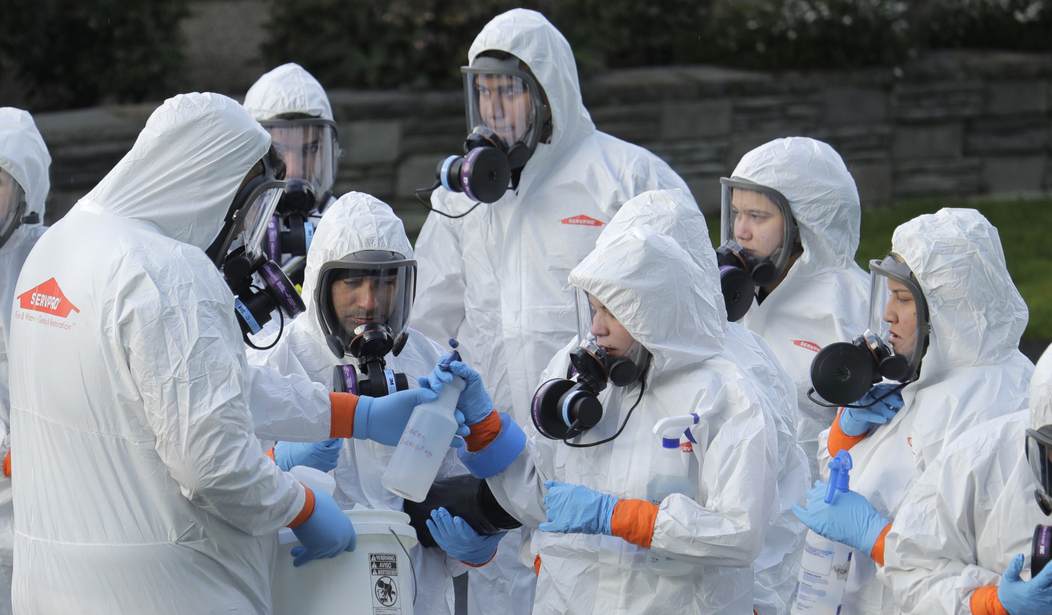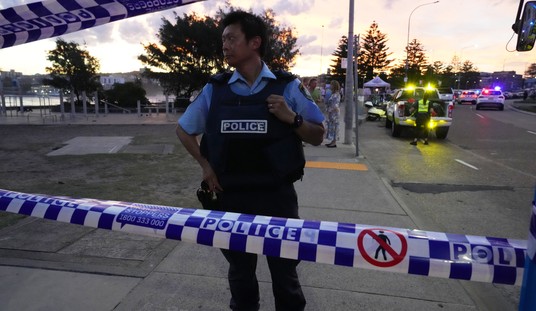The coronavirus pandemic is stretching hospital equipment and supplies to the breaking point and some facilities are considering drastic measures to address the problem.
Generally speaking, the individual patients — if they’ve planned ahead — have their own criteria for when extraordinary measures should be taken in the hospital to save their life. But the pandemic has made that impractical in some areas, causing massive ethics problems for doctors and staff.
Should a patient’s wishes regarding the DNR order — “Do Not Resuscitate” — take precedence over the health and safety of hospital staff?
“If we risk their well-being in service of one patient, we detract from the care of future patients, which is unfair,” bioethicist Scott Halpern at the University of Pennsylvania wrote in a circulated model guideline, according to The Washington Post. Still, he said a blanket do-not-resuscitate policy for all COVID-19 patients is too ”draconian.”
He suggested the patient’s doctor and another should sign off on case-by-case do-not-resuscitate orders for coronavirus patients, giving the reason to the family – although they don’t have to agree with it.
Richard Wunderink, an intensive-care medical director at Northwestern, said that many families are choosing to sign DNRs when hospital staff explain that having to put on protective gear before tending to a “coding” patient decreases the chance of saving their life.
In essence, the families will be told that before they finish putting on all of the protective gear, their loved one will be dead.
But what of the wishes of the patient? Don’t they matter?
“We are now facing some difficult choices in how we apply medical resources — including staff,” Lewis Kaplan, president of the Society of Critical Care Medicine and a University of Pennsylvania surgeon, said, according to The Post.
When a patient “codes,” meaning they’ve gone into cardiac arrest, all available staff respond to the code blue to perform CPR and other lifesaving measures.
“It doesn’t help anybody if our doctors and nurses are felled by this virus and not able to care for us,” R. Alta Charo, a University of Wisconsin-Madison bioethicist, said. “The code process is one that puts them at an enhanced risk.”
Often dozens of masks, gowns and gloves can be used in the process.
The problem is that during resuscitation, copious amounts of bodily fluids can leak out, making the patient highly contagious. In the current circumstances, medical ethicists suggest that the usual rules shouldn’t apply, that protecting hospital staff, who must tend to many patients, should be of paramount importance.
Right now, only patients who are on the verge of dying are being considered for the no DNR order. But what about when hospitals are overflowing with patients and ICU’s are stretched beyond the maximum? Will there be a certain point in the progression of the disease COVID-19 that doctors simply give up and try to save the next patient?
All indications are that we will reach that point in the pandemic sooner rather than later — at least in many cities and regions. The psychological stress on doctors and other health professionals will be profound. I don’t envy the choices they are going to have to make, nor the pain of families who may be left wondering if their loved one could have survived under other circumstances.










Join the conversation as a VIP Member